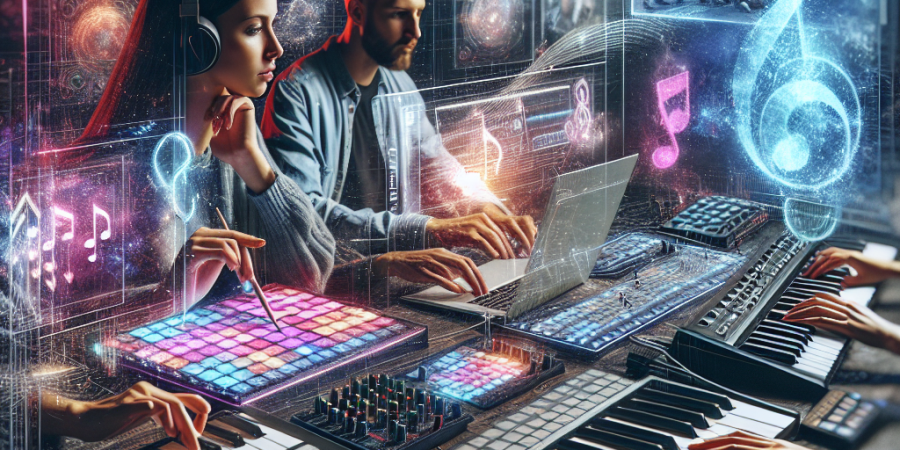How Technology is Shaping Modern Music Production
In the symphony of modern life, technology plays an increasingly important role in how music is created, edited, and appreciated. Gone are the days when music production required a physical studio filled with expensive equipment. Today, technology is opening a world of creative possibilities right at the fingertips of producers and musicians.
The Digital Audio Workstation Revolution
The heart of modern music production lies in Digital Audio Workstations (DAWs). These software solutions have revolutionized the way music is composed, recorded, and mixed. From beginners using GarageBand to professionals crafting symphonies with Ableton Live, DAWs provide tools that were unimaginable a few decades ago.
- Accessibility: DAWs make high-quality music production accessible to anyone with a computer, democratizing the music creation process.
- Flexibility: Musicians can experiment with sounds, genres, and effects to an extent previously limited by physical constraints.
- Integration: Integration with other tools and plugins expands the capability of DAWs, allowing for endless creativity.
The Rise of Virtual Instruments
Remember when a full orchestra was necessary to record a movie score? Well, not anymore. Virtual instruments have become a staple in music production, offering an infinite range of sounds without the need for physical counterparts.
- Cost Efficiency: Virtual instruments eliminate the need for costly hardware, saving both space and money.
- Diversity of Sounds: Producers have access to a global palette of sounds, from traditional instruments to synthesized creations.
- Environmental Impact: Reducing the necessity for physical materials, virtual instruments contribute to a more sustainable production process.
The Influence of Artificial Intelligence
If you’re worried about a robot taking over your job, fear not! In the music world, Artificial Intelligence (AI) is more of a helpful bandmate than a threat. AI assists in various ways, from generating melodies to mastering final tracks.
- Music Analysis: AI algorithms can analyze vast databases of music to find inspiration and trends.
- Sound Innovation: AI can create entirely new sounds, pushing the boundaries of what we consider music.
- Efficiency: AI tools speed up tasks like editing and mastering, giving musicians more time to be creative.
Collaboration Across the Globe
The power of the internet has turned the entire world into a recording studio. Musicians can collaborate online, breaking geographic and cultural boundaries. Platforms for file sharing and communication have revolutionized the way music is created and shared.
By utilizing platforms like Telegram, enthusiasts can find Popular Music Channels on Telegram that cater to specific genres and interests, facilitating even more creative synergy.
Streaming and Distribution: A New Paradigm
While we all miss the charm of vinyl records, the convenience of digital streaming cannot be overstated. Music distribution today is just a click away, allowing artists to reach millions of listeners without a middleman.
- Wider Reach: Artists can share their music globally without needing a record deal.
- Immediate Feedback: Direct interaction with fans helps musicians adapt and evolve.
- Data Analysis: Streaming platforms provide valuable insights into listener behavior and preferences.
Conclusion
Technology is an integral part of modern music production, offering tools for creativity, AI-assisted production, global collaboration, and vast distribution networks. As technology continues to evolve, so too will our music, resulting in innovative works that continue to inspire and connect us all.
Whether you’re a budding artist or a music aficionado, embracing these technological changes can open new doors to creative and collaborative opportunities. Dive into the world of Audio Content on Telegram Channels to stay up-to-date with the latest trends and innovations in the music industry.
